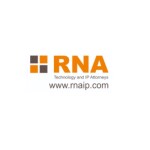The recent ruling by the United States Court of Appeals for the Second Circuit in the case of Hachette Book Group, Inc. v Internet Archive (the IA Case) has raised significant issues regarding copyright, fair use, and access to information.
The Internet Archive (IA), a non-profit organisation, digitises print books and provides them for free through its Free Digital Library. In 2020, four major book publishers sued IA, alleging copyright infringement of their books. The court ruled that IA's use of the books is not fair use and harmed the market for the publishers’ e-books and print books, outweighing the short-term public benefits of IA's Free Digital Library. This decision was further upheld by the appellate court on September 4 2024.
This article explores:
The implications of the IA Case on India’s digital copyright landscape;
Key legal principles such as the first sale doctrine and transformative works;
How this case could influence copyright policies and practices in India;
The potential impact on digital libraries, e-book licensing fees, and government initiatives; and
The challenges and opportunities that lie ahead.
First sale doctrine: background and significance
The first sale doctrine allows the owner of a legally purchased copy of a work to resell, lend, or distribute that copy without further permission from the copyright holder. This doctrine is crucial for libraries, as it enables them to lend books and other materials to the public. The first sale doctrine ensures that once a copyright holder sells a copy of their work, they no longer have control over the distribution of that copy. This principle supports the free flow of information and access to knowledge.
Application to physical and digital works
While the first sale doctrine applies straightforwardly to physical copies of works, its application to digital works is more complex. Digital works are copied in nearly every computing or networking transaction, raising questions about the extent to which the doctrine can be applied.
Legal challenges
In the IA Case, the US court held that libraries making a small number of copies for preservation and replacement purposes does not mean that the IA can distribute these copies en masse, while asserting it is simply performing the traditional functions of a library. This ruling highlights the challenges of applying the first sale doctrine to digital works.
The court in IA’s case rejected its justification towards its use being transformative because it makes lending more convenient and efficient, and uses technology to deliver the work only to one person borrowing the book at a time. Rather, the court ruled that scanning complete books for free without altering its content or meaning (whether on a one-to-one, owned-to-loaned basis or not) is derivative in nature as they serve the exact purpose as the originals; i.e., making the books available digitally, encroaching on publishers’ rights.
Implications in India
In India, the first sale doctrine flows from Section 14(a)(ii) of the Copyright Act, 1957, which grants exclusive rights to copyright owners to "issue copies of the work to the public not being copies already in circulation". However, challenges arise when applying this principle in the digital realm. Since India does not have established legal precedents on digital exhaustion for e-lending, the phrase "copies already in circulation" needs broader interpretation. Furthermore, digital works are copied in nearly every computing or networking transaction, requiring a balance between the rights of copyright owners and libraries in digital redistribution.
Relevant legal provisions
Section 52(1)(n) of the Copyright Act, 1957 permits non-commercial public libraries to reproduce works for preservation if the library already possesses their physical copies. However, it does not clarify the reasonability of distribution/communication of such copies.
Transformative works
The transformative fair use defence is not explicitly available under the Indian copyright law. However, Indian courts have occasionally touched upon transformative uses in their interpretations of fair dealing, particularly in the context of education and research. For instance, in Syndicate of The Press of the University of Cambridge v B.D. Bhandari and Anr. (2009), the court recognised use of a work for the purposes of making a guidebook as transformative and substantially different from the purpose for which the original work was made and constituted fair use.
Potential implications in India
This case has gained significant attention, which could influence copyright policies and practices worldwide, including in India.
The legal challenges – the IA Case is similar to the ongoing suit titled Elsevier Ltd. & Ors v Alexandra Elbakyan & Ors (2020), filed before the High Court of Delhi against the platforms Sci-Hub and Library Genesis (LibGen) for providing free public access to academic papers, journals, and books. The IA appeal order may have a bearing on this lawsuit as the court addresses the conflict between copyright protections for publishers and the right to access scientific knowledge.
Limited access – stricter implementation could lead to limited access to digital books and educational resources in India, especially in educational institutions and among underprivileged communities. Indian libraries and institutions using digitised versions of books might face stricter copyright enforcement.
E-book licensing fees – this may impose a burden on libraries and reduce access to creative work.
Fair use interpretation – Section 52(1) of the Copyright Act, 1957 allows some forms of reproduction of work used for educational, non-commercial purposes. In the DU Photocopy judgment (2016), the court ruled that photocopying portions of books for educational purposes falls under fair use for educational purposes. It is imperative that a balance between copyright protection and public access to knowledge is maintained. The US ruling may have a bearing on how Indian courts interpret fair dealing in the digital realm, potentially narrowing the definition and making it challenging for institutions to digitise and lend books.
Government initiatives compliance – the government-initiated National Digital Library of India provides free access to digital content for learners and researchers. Furthermore, India’s ‘One Nation, One Subscription’ initiative aims to provide affordable or free access to academic and research resources by negotiating nationwide licences with academic publishers to improve India’s scientific output, research capabilities, and educational equity. The government may need to ensure that its initiatives comply with international copyright laws while promoting access to educational resources.
Fair use for public libraries – Section 52(1)(o) of the Copyright Act, 1957 offers a narrow exception for public libraries to reproduce up to three copies of works unavailable for sale in India, for non-commercial library use. This provision enables libraries to maintain access to important materials for public benefit but does not allow for large-scale digitisation or distribution. In India, where many important works are out of print and difficult to find, the US ruling impacts access to such works. India may need to reassess how it handles works that are not in active circulation but are still under copyright protection.
Digitisation efforts – Indian digital libraries may need to remodel their digitisation efforts by adding new value to original works in the form of annotations, analyses, or significant reorganisation of materials, to constitute transformative works.
AI and copyright – the rise of AI and its use of copyrighted materials for its training may reshape the publishing landscape, requiring closer collaboration between publishers and digital platforms. In India, legal clarity is needed regarding the use of digitised content for AI training. The ruling against the IA could influence Indian courts to adopt a more restrictive approach on whether AI developers can use digitised content for machine learning without permission.













